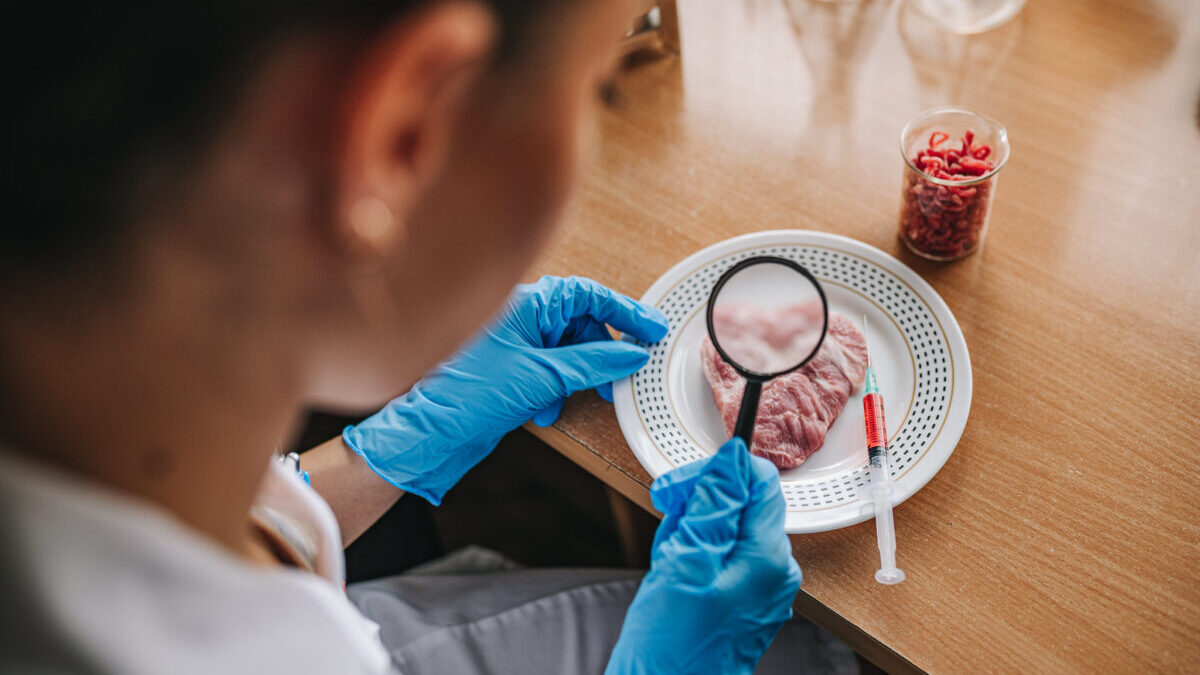
A pair of bipartisan senators proposed legislation last week to keep lab-grown meat out of the school cafeteria.
On Friday, Sens. Mike Rounds, R-S.D., and Jon Tester, D-Mont., announced the School Lunch Integrity Act of 2024 prohibiting cell-cultivated meat from being included in the National School Lunch Program (NSLP) and the School Breakfast Program (SBP).
“Our students should not be test subjects for cell-cultivated ‘meat’ experiments,” said Sen. Rounds. “South Dakota farmers and ranchers work hard to produce high quality beef products. These products are often sold to South Dakota schools, where they provide necessary nutrition to our students. With high quality, local beef readily available for our students, there’s no reason to be serving fake, lab-grown meat products in the cafeteria.”
The first product of cultivated meat came in the form of a lab-grown burger unveiled by a Dutch scientist in 2013. Ten years later, the U.S. Department of Agriculture (USDA) gave the first agency approval for the public sale of lab-grown meat to UPSIDE Foods and GOOD Meat. But questions remain surrounding the health and environmental consequences of synthetic meats manufactured in a lab.
“I’d rather eat my shoe than lab-grown meat,” said nutritionist and food author Diana Rodgers in a summer interview with the New York Post.
“Because of a lack of available nutritional information on lab-grown meat,” the Post reported, “Rodgers could not say how healthy cell-cultured meat is.”
“We just don’t know,” Rodgers told the Post. “I have yet to see a life cycle assessment on the production of it. We don’t have any public data.”
The United States and Singapore are the only two countries where lab-grown meat has been approved for consumers. The Netherlands is allowing the synthetic products to be tasted in controlled environments, and Italy banned the sale of lab-grown meat in November.
According to a pre-print paper from the University of California, which has yet to be peer-reviewed, the environmental impact of lab-grown meat “is likely to be orders of magnitude higher than median beef production” with near-term production.
In a press release Friday, Senator Tester called the School Lunch Integrity Act a “commonsense bill” to ensure students are served with “real meat from our ranchers” and “not a fake substitute that’s grown in a lab.”
“Montana ranchers grow the best meat in the world, that’s a fact — and our students ought to be getting the best in their school breakfasts and lunches every day,” Tester said.
While Tester joins Rounds to keep lab-grown meat off the NSLP, Democrats on the Senate Agriculture Committee led by Debbie Stabenow of Michigan recently blocked a measure led by GOP Kansas Sen. Roger Marshall to upgrade milk in schools. The “Whole Milk For Healthy Kids Act” amends the Richard Russell National School Lunch Act to allow schools with federally subsidized meal programs to offer whole milk alongside low-fat varieties. A House version of the law passed the lower chamber in December but was blocked by Senate Democrats before Christmas.
House Republicans launched a separate effort last year to protest the Biden administration’s efforts to eliminate sugary chocolate milk from elementary and middle school cafeterias.
[RELATED: Republicans In The Swamp Should Take On The Real Culture Wars, Not Biden’s ‘War On Chocolate Milk’]








